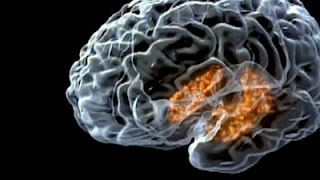If you're ready to have your big brain explode, our friend Hank Green does a great job of laying out the basics of the history of psych too... be ready for some rapid-fire knowledge with this one.
You can watch it directly on Youtube too.
Some timelines of the history of psychology:
http://www.learner.org/series/discoveringpsychology/history/history_nonflash.html
http://allpsych.com/timeline/#.VgioYGRViko
http://psychology.about.com/od/historyofpsychology/a/psychistory.htm
And... a sample from a comic called Action Philosophers
http://www.actionphilosophers.com/eviltwin_actionphilosophers_preview.pdf
Sunday, September 27, 2015
Tuesday, September 8, 2015
Unit 1 - Chapter 7: Memory - How we remember, why we forget.
Unit 1 Chapter 7 Memory
Key ideas from Memory
Unit:
Encoding, episodic
vs. semantic and procedural memory, explicit vs. implicit memory, maintenance
and rehearsal strategies to improve memory, various models of how memory works
such as PDP and Info Processing, understand the difference between sensory,
short term, and long term memory, compare recency and primacy effects,
understand what affects memory retrieval, understand the limits of eye-witness
testimony, Herman Ebbinghauss , compare retroactive and proactive
interference, compare retrograde and
anterograde amnesia,
*****Use mnemonics
and distributed practice to learn all this stuff and know why you are
remembering and forgetting.
Good overview of basic memory concepts.
A whole site dedicated to human memory... very helpful. It has this very complete concept map.
http://www.human-memory.net/types.html
Crash Course Psychology with our friend Hank!
How we make memories...
How we make memories...
Remembering and Forgetting
Some fun memory games you can do online
Elizabeth Loftus's Ted Talk - The Fiction of Memory... the rape conviction of an innocent man...
NOVA: How Memory Works
Article - What Science Says about Ferguson: Hacked memory. We may all be working from different sets of "facts" about the same event.
http://www.forbes.com/sites/fayeflam/2014/12/01/what-science-says-about-the-ferguson-case-memory-can-be-hacked/
This is not specifically about memory, but about implicit associations we make about people.
https://implicit.harvard.edu/implicit/demo/ You can take some of the Implicit Association Tests to see what some of your implicit associations about people and groups are. I’m putting it with this unit as an example of implicit vs. explicit thought processes.
Story from National Public Radio (NPR) about H.M., the man who had the bilateral removal of his hippocampus (What is the plural of hippocampus?) and ended up with the nearly complete inability to form new memories. Find out why he had his hippocampus removed and learn about this amazing case study of anterograde amnesia.
http://www.npr.org/templates/story/story.php?storyId=7584970
And an article from Psychology Today about H.M.
This video clip was made based on 2000 slices that were made of H.M.'s brain after he died in 2008.
And an article from Psychology Today about H.M.
This video clip was made based on 2000 slices that were made of H.M.'s brain after he died in 2008.
The movie Memento was the first feature film by star director Christopher Nolan who went on to direct The Dark Night and Inception. It is a fictional film about a character who, like H.M., loses the ability to create any new memories, but still tries to solve a horrible crime.
It is rated R due to some very violent content and adult language. If that sort of film is acceptable to you and your parents, you can stream it on Netflix or rent it. It's definitely not appropriate for younger siblings.
Friday, September 4, 2015
Summer Assignment Parts 3 and 4 - Due on Tuesday 9/8
Part 3 Due the FIRST day of class Complete all the study-guide questions for
“Phineas Gage” by John
Fleischman in your AP Psych Notebook.
Part 4. Due the First day of class: Read AND take Cornell Notes and make
Flash-Cards for chapter 7,
MEMORY, in the Bernstein psychology textbook. You will keep these notes and
flashcards all year and use them as you study for the AP Exam, so have a good
notebook or binder that will last all year. The main thing to do when you take
notes is ORGANIZE the information in such a way that it makes sense to
you. Write questions and your own thoughts about the material as
well as headings and subheadings in the left column of your notes. The more you
can connect this material to information you already know or experiences you’ve
had, the better you will learn and understand the material.
We’re reading Ch7
first because many students have said that it helped them learn to memorize new
terms and concepts. This knowledge will help you all year and beyond. Review
the Key Ideas listed below to be sure they’re in your notes, flashcards and
brain.
Key ideas from Memory
Unit / Chapter 7:
Encoding, episodic
vs. semantic and procedural memory, explicit vs. implicit memory, maintenance
and rehearsal strategies to improve memory, various models of how memory works
such as PDP and Info Processing, understand the difference between sensory,
short term, and long term memory, compare recency and primacy effects,
understand what affects memory retrieval, understand the limits of eye-witness
testimony, Herman Ebbinghauss , compare retroactive and proactive
interference, compare retrograde and
anterograde amnesia,
*****Use mnemonics
and distributed practice to learn all this stuff and know why you are
remembering and forgetting.
It’s also a great
idea to skim through the textbook to familiarize yourself with the topics we’ll
be learning all year. Jot down questions you have on sticky-notes and put them
in your book so you remember to ask them when we get to the unit.
On the first day of
class be prepared to discuss the Phineas Gage book as well as Chapter 7 of the
Bernstein text.
Subscribe to:
Comments (Atom)




